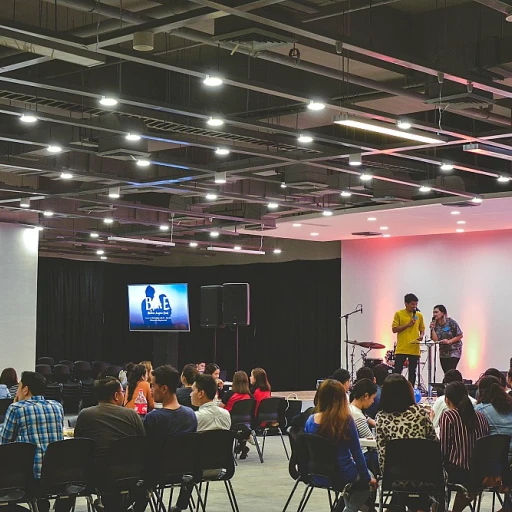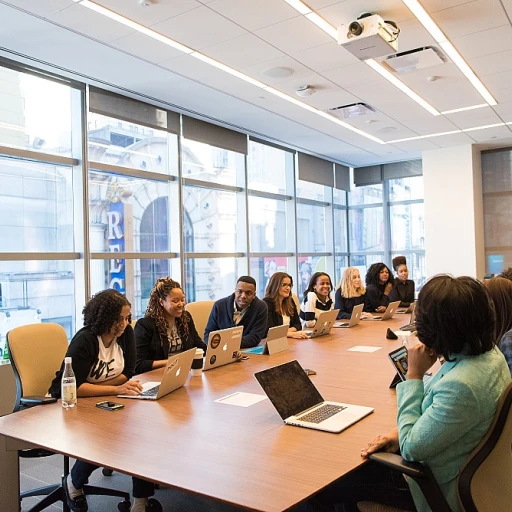
Defining an externship and its purpose
Exploring the Basics of Externships
When you hear the term externship, you might wonder what it really means and how it fits into the world of work experience. An externship is a short-term, hands-on learning opportunity that allows students or early career professionals to observe and participate in a real work environment. Unlike a traditional internship, which often lasts for several months and may involve more direct responsibilities, externships are typically shorter—sometimes just a few days or weeks. They are designed to give participants a snapshot of a specific field or job, helping them understand what the day-to-day work actually looks like.
Externships are especially popular in fields like law, healthcare, and human resources, where gaining real experience can be crucial for career development. For example, law school students often participate in externship programs to fulfill field placement requirements or earn academic credits. These experiences can be structured as part of a program or offered independently by companies and organizations looking to introduce potential candidates to their work culture.
Some externships may include attending a seminar, shadowing professionals, or even participating in projects under supervision. While they are usually unpaid and short term, externships help students and job seekers build skills, expand their professional network, and clarify their career goals. In some cases, externships are scheduled during inclement weather periods or academic breaks, such as summer externships, making them accessible for college students who want to maximize their professional experience without committing to a full time role.
- Externships offer a real-world look at a specific job or field
- They are generally short term and may not always be paid
- Participants gain hands-on experience and insight into workplace culture
- Externships can sometimes count toward academic credits or program requirements
Whether you are comparing internships and externships or looking for ways to gain work experience in HR, understanding what externships offer is a key step. For those interested in creative professional experiences, you might also want to explore creative ways to celebrate workplace learning as part of your career journey.
Externship versus internship: key differences
Comparing Externships and Internships: What Sets Them Apart?
When exploring ways to gain real experience in the HR field, students often hear about both externships and internships. While these terms sound similar, they represent different types of field placements, each with its own requirements and benefits. Understanding what externship and internship programs offer can help you make informed decisions about your career path.
- Duration and Commitment: Externships are typically short term, sometimes lasting just a few days or weeks. Internships, on the other hand, often require a longer commitment, sometimes full time over a summer or part time during a semester.
- Nature of Experience: Externships usually focus on shadowing professionals, attending seminars, and observing daily work. This hands experience allows college students to see what the HR field is really like without the pressure of major responsibilities. Internships, however, are more hands-on, with students expected to contribute to projects and tasks, gaining direct work experience.
- Academic Credit and Financial Aid: Some externship programs offer academic credits, but it’s more common with internships. Internships may also provide financial aid or stipends, while externships are often unpaid, focusing on professional exposure.
- Program Structure: Externships are often organized through college programs or law school field placements and may be tailored to fit around academic schedules, including during inclement weather or school breaks. Internships are generally more structured, with set requirements and evaluations.
Both externships and internships help students develop skills and build a professional network. However, externships help those who want a quick, immersive look at a career field, while internships are better for those seeking deeper, real work experience. For more tips on how to present your field placement experience on your resume, check out this guide on crafting an effective HR resume.
How externships benefit HR job seekers
Why Externships Matter for Aspiring HR Professionals
For students and early-career professionals interested in human resources, externships offer a unique way to gain real work experience in the field. Unlike internships, which are often longer and may require full time commitment, externships are typically short term and more flexible. This makes them especially accessible for college students or those balancing coursework and other responsibilities.
- Hands-on exposure: Externships help participants understand what HR professionals do day-to-day. You might observe recruitment processes, attend a seminar on workplace policies, or assist with field placements. This real experience is invaluable for understanding the requirements of HR roles.
- Skill development: Through externship programs, students can build practical skills like communication, conflict resolution, and data management. These are essential for anyone considering a career in HR.
- Professional networking: Externships offer the chance to connect with HR professionals and other externs. These relationships can lead to mentorship, references, or even future job opportunities.
- Career exploration: If you’re unsure about which HR path to pursue, externships and internships allow you to test different environments, from corporate offices to nonprofit organizations. This helps clarify your career goals before committing to a full time position or further study.
- Academic benefits: Some externship programs offer college credits or financial aid, making them a practical option for students who want to fulfill academic requirements while gaining professional experience.
Externships are also a great way to demonstrate your commitment to the field when applying for jobs. Employers value candidates who have taken the initiative to seek out real-world learning opportunities. If you’re preparing for HR job interviews, you can learn more about how externships help you stand out by visiting this guide on navigating HR job interviews.
Whether you’re in law school, enrolled in a specialized HR program, or just starting to explore the field, externships and internships both offer valuable field placements. By participating in these programs, you gain not only knowledge but also the confidence to pursue your chosen HR career path.
Finding and applying for HR externships
Where to Look for HR Externship Opportunities
Finding the right externship in the HR field starts with knowing where to search. Many college students begin by checking with their school’s career services office, which often maintains a list of available externship programs and field placements. Professional organizations in human resources, such as the Society for Human Resource Management (SHRM), may also offer externships or post opportunities on their websites. Don’t overlook company career pages, as some businesses advertise short term summer externships or even full time field placements for students interested in gaining real experience.
Understanding Application Requirements
Each externship program can have different requirements. Some may be open only to students enrolled in specific degree programs, while others might require a minimum GPA or certain completed coursework. Law school externships, for example, often have unique prerequisites compared to general HR internships. Be sure to review the details carefully, including whether the externship offers academic credits, financial aid, or is unpaid. Some programs may require you to attend a seminar or orientation before starting, especially if the externship involves hands-on work experience in the field.
Tips for a Strong Application
- Highlight relevant skills and coursework in your resume and cover letter.
- Showcase any previous internships or work experience, even if it’s not directly in HR.
- Tailor your application to each externship, focusing on what makes you a good fit for the specific program.
- Prepare to explain why you want real professional experience in HR and how the externship will help your career goals.
What to Expect During the Process
After submitting your application, you may be invited for an interview or asked to complete additional assessments. Some externship programs, especially those with field placements, might require you to be available during specific times, such as summer or during inclement weather periods when regular classes are not in session. Stay organized and keep track of deadlines, as externships help you build hands-on experience and professional connections that can set you apart in future HR job interviews.
Making the most of your externship experience
Building Lasting Connections and Gaining Real Experience
To truly benefit from an externship, students and job seekers should focus on more than just completing the program requirements. Externships offer a unique chance to gain hands-on experience in the HR field, and making the most of this opportunity can set you apart from others who have only completed internships or classroom work.
- Engage actively: Don’t just observe—ask questions about the work, processes, and challenges. Show genuine interest in the field placement and the day-to-day tasks of HR professionals.
- Seek feedback: Regularly ask for input on your performance. This helps you improve your skills and demonstrates your commitment to learning and professional growth.
- Network with intention: Connect with HR staff, other externs, and even professionals from related departments. These relationships can lead to future job opportunities or valuable career advice.
- Document your experience: Keep a journal or log of your tasks, projects, and what you learned. This record will be useful when you need to present your externship experience in future job interviews or update your resume.
- Participate in seminars and training: If the externship program offers workshops or seminars, attend them. These sessions can provide additional skills and insights that go beyond the daily work experience.
Turning Short-Term Placements into Long-Term Value
Externships are often short-term and may not offer financial aid or college credits, but the real value lies in the professional experience and exposure to the HR field. Whether you are a college student, recent graduate, or considering a career change, here are some tips to maximize your externship:
- Show adaptability: Be prepared for unexpected situations, such as inclement weather or changes in the work schedule. Flexibility is a valued skill in HR roles.
- Clarify your goals: Before starting, identify what you hope to learn or achieve. Share these goals with your supervisor so they can help tailor your experience.
- Reflect on your growth: At the end of the externship, review what skills you developed and how the experience has shaped your understanding of the HR profession.
By approaching your externship with intention and enthusiasm, you’ll gain more than just a line on your resume. You’ll develop practical skills, build a professional network, and gain insights that will help you succeed in HR job interviews and throughout your career.
Presenting externship experience in HR job interviews
Showcasing Your Externship in HR Interviews
When you step into an HR job interview, your externship experience can be a powerful asset. Many students and recent graduates wonder what the best way is to present their externships, especially compared to internships or full time work. Here are practical tips to help you highlight your externship program and field placement in a way that resonates with HR professionals.- Be Clear About the Program: Explain what externship you completed, including the organization, duration, and whether it was a summer externship, part of a seminar, or a short term field placement. Clarify if you earned credits or met specific requirements as part of your college program.
- Connect to Real Work Experience: Emphasize the hands-on experience you gained. Describe the tasks you performed, the HR skills you developed, and how you contributed to the team. If you faced challenges, such as adapting to inclement weather or balancing externships with other commitments, mention how you managed these situations.
- Highlight Professional Growth: Discuss the professional experience and insights you gained. For example, if you attended a seminar or worked on a project that deepened your understanding of HR policies or employee relations, share these details. Show how the externship helped you develop skills relevant to the HR field.
- Compare with Internships: Briefly explain how your externship differed from internships you may have completed. Point out the unique aspects of externships, such as the focus on observation, shadowing, or field placements, and how these experiences offered a different perspective on the HR profession.
- Quantify Your Achievements: Whenever possible, use numbers or specific outcomes to demonstrate your impact. For instance, mention if you helped streamline a process, contributed to a successful event, or supported a team during a busy period.
- Relate to Career Goals: Tie your externship experience to your long-term career aspirations in HR. Explain how the externship helped you clarify your interests, build a professional network, or prepare for future internships, externships, or full time roles.













